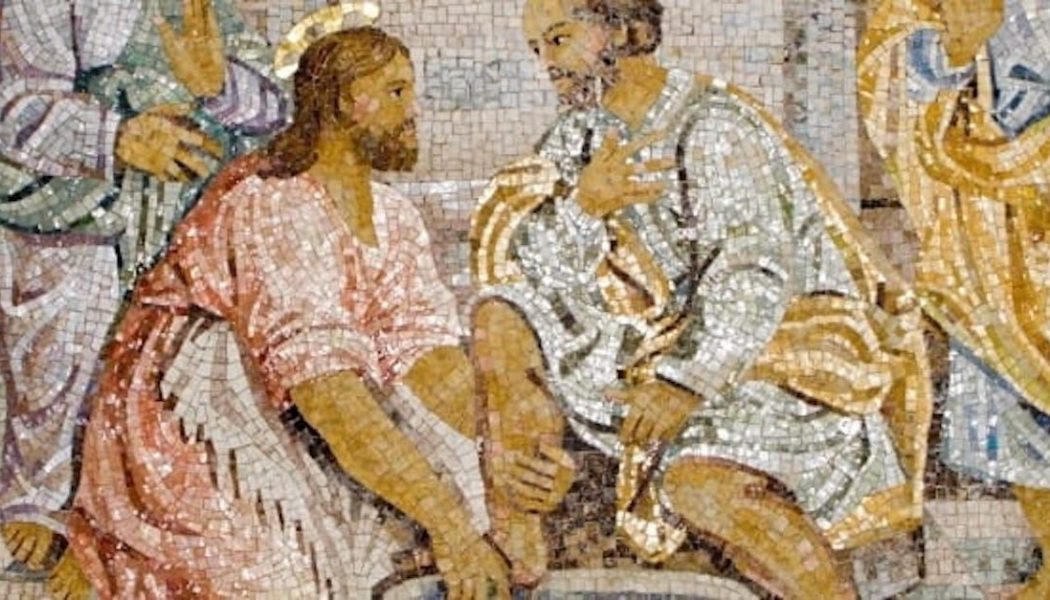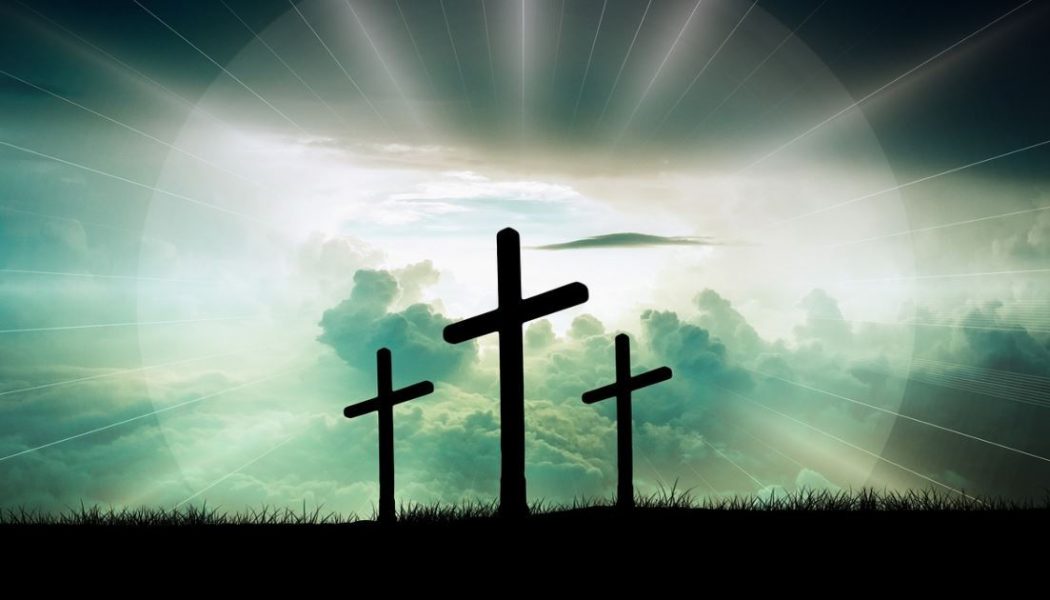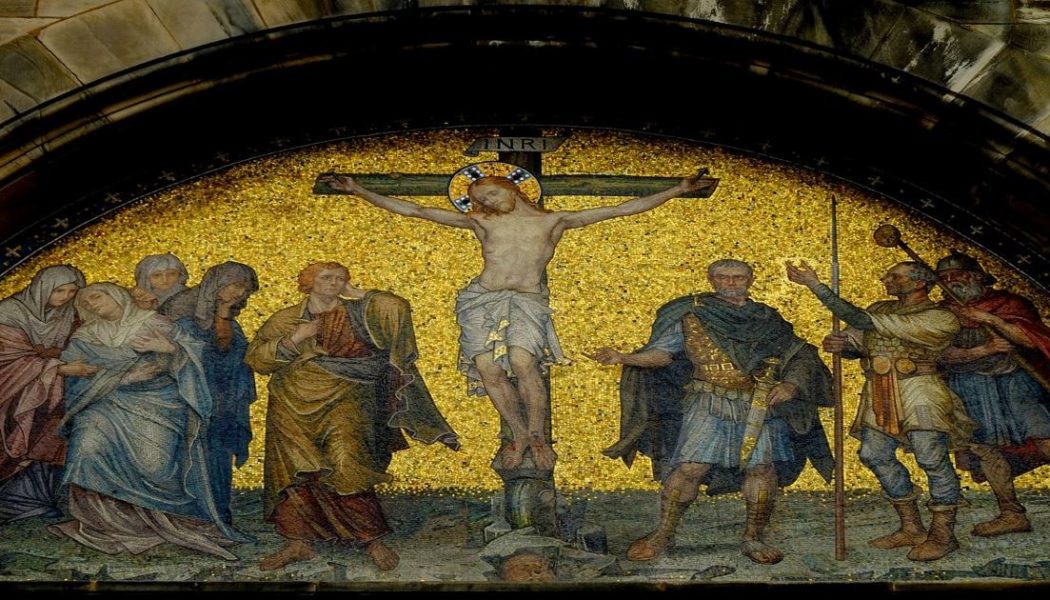Blog
What is hell? (James 3:6 and James 5:3 provide the answer)
I have a book on hell coming out in June, titled What is Hell? You can pre-order the Kindle version on Amazon. You can also sign up to take my online course on hell. It covers the same topics as the book, but in audio teaching format: Go here to sign up for the “What is Hell?” online course. The course will be available in June when the book comes out. Between now and then, I will be focusing my podcasts studies on some of the content from the book. We will look at several key terms from the Bible that are often equated with hell, and about a dozen key passages that are thought to teach about hell. In previous studies, we have looked at the words sheol, gehenna, abyss, tartarus, hades, the ‘outer darkness‘ and the Lake of Fire. In each case, we have seen that none of these words describe a...
What is Maundy Thursday?
Good Friday, we know. And Easter most certainly. But what is Maundy Thursday? Maundy Thursday is the Thursday before Easter, believed to be the day when Jesus celebrated his final Passover with His disciples. Most notably, that Passover meal was when Jesus washed the feet of His disciples in an extraordinary display of humility. He then commanded them to do the same for each other. What does Maundy Thursday Mean? Christ‘s “mandate” is commemorated on Maundy Thursday—“maundy” being a shortened form of mandatum (Latin), which means “command.” It was on the Thursday of Christ’s final week before being crucified and resurrected that He said these words to his disciples: “A new commandment I give to you, that you love one another: just...
Why Did Jesus say “It Is Finished”? Meaning and Importance of His Last Words
Later, knowing that everything had now been finished, and so that Scripture would be fulfilled, Jesus said, “I am thirsty.” A jar of wine vinegar was there, so they soaked a sponge in it, put the sponge on a stalk of the hyssop plant, and lifted it to Jesus’ lips. When he had received the drink, Jesus said, “It is finished.” With that, he bowed his head and gave up his spirit. (John 19:28-30) Meaning of “It is finished” as Tetelestai “It is finished” is the English translation of the Greek word Tetelestai, which was the last thing Jesus’ said before dying on the cross. Tetelestai comes from the verb teleo, which means “to bring to an end, to complete, to accomplish.” It’s a crucial word because it signifies the successful end to a partic...
Why Did the Crowd Turn on Jesus and Yell “Crucify Him”?
During the Passion Week, the crowd in Jerusalem seems to have had a major swing in opinion. Jesus entered the city to praise and adoration but, by the end of the week, faced a crowd shouting “Crucify Him!” demanding for his crucifixion. Can such a change really happen so quickly? Why Did the Crowd Turn on Jesus and Yell “Crucify Him”? We must consider first that the people shouting “Hosanna” when Christ arrived were not the residents of Jerusalem. Instead, He rode in the company of pilgrims coming to the city for Passover. Because of the news about Jesus raising Lazarus from the dead and hopes that the Messianic Kingdom would soon begin, these pilgrims took to shouting and praising in their enthusiasm. Singing on the road to Jerusalem was not uncommon, a...
Is Jesus Christ Forever Human?
Christianity.com is a member of the Salem Web Network of sites including: Bible Study Tools • Crosscards.com • Crosswalk.com • GodTube.com • iBelieve.com • Jesus.org • Lightsource.com • Oneplace.com • ChristianHeadlines.com • Advertise with Us • Contact Us Copyright © 2019, Christianity.com. All rights reserved. Article Images Copyright © 2019 JupiterImages Corporation.
When Is Easter?
Christmas is December 25; Valentine’s Day is February 14; Halloween is October 31 – but when is Easter? Each year we have to look at a calendar to find out the date of this major Christian holiday because this moveable feast can occur any time from March 22 to April 25. Why is this so? Why isn’t Easter the same day every year like other holidays? The yearly celebration of Jesus’ resurrection is the oldest feast of the Christian Church, and the resurrection has been a central belief of the Christian faith from its beginning. As Paul said, if Christ is not risen, our preaching is in vain and we are a people most miserable (1 Corinthians 15:12-14). Of course, every Sunday’s worship is a celebration of the risen Lord, but a special day for the resurrection has been part of th...
What Really Happened on Palm Sunday?
Luke describes the arrival of Jesus in Jerusalem at the beginning of that last week of his earthly life: As he was drawing near, at the descent of the Mount of Olives, the whole multitude of the disciples began to rejoice and praise God with a loud voice for all the mighty works that they had seen, saying, “Blessed is the King who comes in the name of the Lord! Peace in heaven and glory in the highest! (Luke 19:37, 38) Palm Sunday: Today and To Come There is no doubt what was in the disciples’ minds. This was the fulfillment of Zechariah’s prophecy given centuries earlier: Rejoice greatly, O daughter of Zion! Shout aloud, O daughter of Jerusalem! Lo, your king comes to you; triumphant and victorious is he, humble and riding on an ass, on a colt, the foal of an ass. I will...
What is the Lake of Fire in the Bible? Is it hell?
I have a book on hell coming out in June, titled What is Hell? You can pre-order the Kindle version on Amazon. You can also sign up to take my online course on hell. It covers the same topics as the book, but in audio teaching format: Go here to sign up for the “What is Hell?” online course. The course will be available in June when the book comes out. Between now and then, I will be focusing my podcasts studies on some of the content from the book. We will look at several key terms from the Bible that are often equated with hell, and about a dozen key passages that are thought to teach about hell. In previous studies, we have looked at the words sheol, gehenna, abyss, tartarus, hades, and the ‘outer darkness.’ In each case, we have seen that none of these words describe a place of everlas...
What is the Meaning of Hosanna in the Bible?
Hosanna is often translated “Please Save Us.” It is a Greek word “ὡσαννά” that most scholars believe is the transliteration of two Hebrew words- יָשַׁע- “yasha” which means “to save or deliver” and אָנּאָ – “anna” which means “please, I beseech.” Other scholars believe its Hebrew roots come from a different verb tense of “yasha” הוֹשַׁ֣ע which means to cause or to bring about salvation. In this tense, hosanna becomes a command to bring about or cause salvation. Where is Hosanna in the Bible? Hosanna occurs in the New Testament 6 times. Matthew, Mark, and John mention that the people called out “Hosanna” in praise and celebration during Jesus’ Triumphal Entry to Jerusalem during the week before Passover. “So they took branches of palm trees and went out to meet him, crying out, ‘Hosan...
What is Palm Sunday and Why Do Christians Celebrate It?
Every year, my calendar reminds me that it is almost Palm Sunday. For many people, this day is the unofficial beginning of Spring Break, but it has a deeper significance for Christians. What is Palm Sunday? On Palm Sunday, Christian churches often give the congregation palm branches to re-create the celebration of Christ’s final arrival in Jerusalem because his followers used palm branches to honor him as King and Messiah. When is Palm Sunday? Palm Sunday is the last Sunday in Lent and the Sunday before Easter. It’s the beginning of Holy Week, the most important week of the year for Christians. The date changes every year because the date of Easter changes in relation to the Jewish holiday of Passover. 2019: April 14 2020: April 5 2021: March 28 The Story of Palm Sunday ...
What is Hades in the Bible? Is it hell?
I have a book on hell coming out in June, titled What is Hell? You can pre-order the Kindle version on Amazon. You can also sign up to take my online course on hell. It covers the same topics as the book, but in audio teaching format: Go here to sign up for the “What is Hell?” online course. The course will be available in June when the book comes out. Between now and then, I will be focusing my podcasts studies on some of the content from the book. We will look at several key terms from the Bible that are often equated with hell, and about a dozen key passages that are thought to teach about hell. In previous studies, we have looked at the words sheol, gehenna, abyss, tartarus, and the ‘outer darkness.’ In each case, we have seen that none of these words describe a place of everlasting to...























